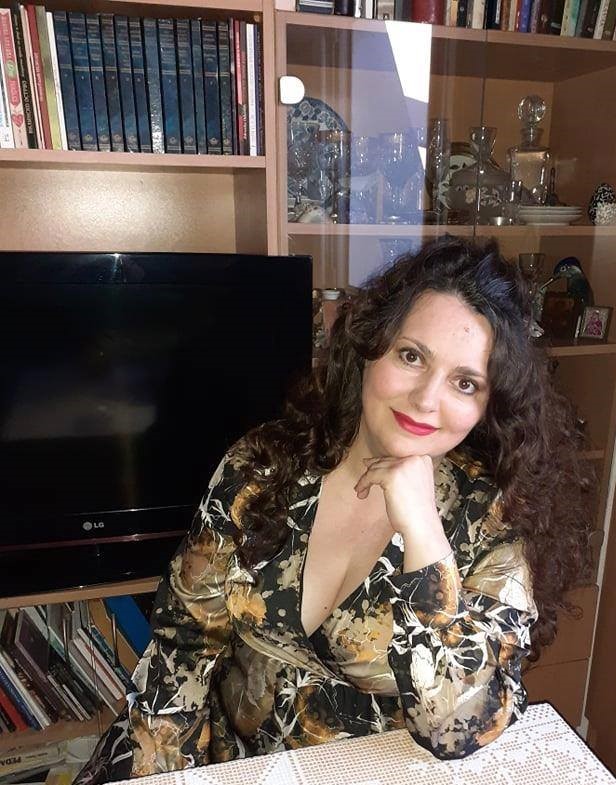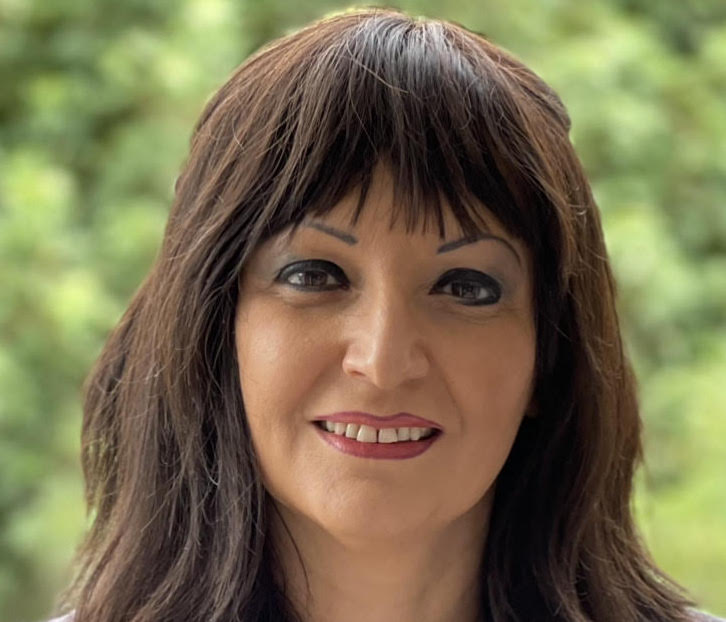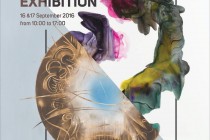It seems that I am repeating myself, but I can’t stop asking the question: “What has changed since my article from 25 November 2020? And once again, I am very saddened to say, “Nothing!”
Unfortunately, nothing has changed except the numbers. Although violence against women and girls is PREVENTABLE, the numbers on violence against women and girls have increased and remain very disturbing.
If the date of my last article can be changed, it could easily look as if it was written today, with only minor changes to reflect the new cases and an ever more dire set of statistics.
This time, by compiling my article on this issue I have asked some marvellous women from different countries to share their thoughts on the ‘International Day for the Elimination of Violence against Women and Girls’.
Indeed, it is more important now to listen to women’s voices and to understand their thoughts, their knowledge, their feelings, their ideas, and their recommendations on this major issue which affects around 30% of all women.
To state this in another way, 1 in every 3 women in the world have been subjected to violence at least once in their lifetime. Let that sink in.
Statistics from the World Health Organisation (WHO) show that almost one third (27%) of women aged 15-49 years have experienced some form of violence by their intimate partner. That’s women subjected to violence from their intimate partners, who they have chosen to be with, to spend their life with, to trust and to love. The WHO further reports that younger women are most at risk of violence in the many forms it takes.
This reality is not only a major public health problem, but also a violation of women’s fundamental human rights.
The director-General of WHO, Dr Tedros Adhanom Ghebreyesus, said in 2021: “Violence against women is endemic in every country and culture, causing harm to millions of women and their families.
“We can only fight it with deep-rooted and sustained efforts – by governments, communities and individuals – to change harmful attitudes, improve access to opportunities and services for women and girls.”
Governments around the world, as Dr Tedros Adhanom Ghebreyesus states, try to fight with reasonable efforts, but it is still not acceptable that many women who seek refuge can be refused access or that support services are declined. We can clearly see this in the statistics for England and Wales.
The number of women referred to refuge services but were declined access in the year ending March 2021 was given as 61.9% in England and 40.2% in Wales. It is striking that the refuge services were not able to support so many women who sought help.
Equally, despite clear guidelines by the Council of Europe on refuge bed spaces, those available in England remain very low. The only refuge services that look promising are those in London and the West Midlands, as they exceed the minimum recommended number of bed spaces.

This is something which the UN Women Executive Director Phumzile Mlambo-Ngcuka wants to see change, by dedicating the right level of resources to resolve the problems. She said, “Every government should be taking strong, proactive steps to address this, and involving women in doing so”.
In another country, Turkiye, 31.4 % believe the biggest problem for women in the country is domestic violence, according to statistics from the “Türkiye’s Pulse” survey, while 45.7 % of respondents said the government is responsible for the high levels of domestic violence.
Turkish NGOs estimate that in a 12-month period between 2021 and 2022, a staggering 320 women were killed, which equates to approximately 27 women each month.
The figures remain consistently high for the past decade, meaning that one woman was murdered in Türkiye virtually every single day for the past ten years.
In Iran in September of this year, the killing of 22-year-old Mahsa Amani was a chilling reminder to the world of what can happen when a woman seeks her own freedom.
Women can be seen often as ‘disobedient’ and expected to bear heavy consequences for their rule-breaking ‘actions’, in Mahsa’s case, not adhering to the strict guidlines on covering her hair with a hijab: they can be injured, beaten up and, in some cases, murdered.
After Mahsa’s killing, new reports and statistics emerged, informing us even more on the extent of violence against women and girls across Iran.
Sarina Esmailzadeh, Nika Shakarami and Hadis Najafi, all aged between 16-23, were also killed in September for protesting against the Iranian regime and demanding their rights as young women. Each one was allegedly killed by Iran’s security forces for simply daring to raise her voice to be free. Sarina, Nika and Hadionly wanted, both for themselves and for other women, equal rights, equal opportunities, and the right to live free as human beings.

In 2021, the WHO reported domestic violence in Iran was estimated to be 66%, and that in the eastern part of the country, it was estimated to be as high as 70%. These harrowing statistics mean Iran holds the world record for the highest levels of domestic violence against women.
The findings reflect a 2018 news report by the state-run ISNA news agency, who cite Fatemeh Ghasempour, the head of the Research Centre on Women and Family in Tehran, stating that “66% of Iranian women experience domestic violence in their lifetime”.
Surely, and unfortunately, the statistics on violence against women in Iran for the week leading up to International Day for the Elimination of Violence Against Women and Girls this year will be even higher, given the arrests and killings during the ongoing public protests.
Against all the odds and difficulties, we as women will never stop raising our voices for our rights, for our human rights.
We will continue to press for our rights to be free, to be treated as an equal, and to be fully respected members of the societies we live within.
Poem against violence against women and girls: No!
NO to violence and murder against women and girls!
We WOMEN
We are fed up
We are tired
We are exhausted
Enough
To hitting
To beating
To violence
And
To killings
ENOUGH!
Poem By Semra Eren-Nijhar

Our voices will echo and get louder with the voices of all women in the world, against any form of violence against women and girls.
Serbia: Valentina Novković (Prof. of Russian Language, Poet)
Unfortunately, we witness that violence against women is not decreasing. Physical, emotional, financial, or other forms of violence occur every day, often with fatal outcomes. That is why it is very important to raise awareness and to educate young people not to suffer any violence, either in their primary family or later, when they are dating men or in a marriage.
It is important that the victims should not feel ashamed and think the society will stigmatize them. There are institutions and specialists to whom they can tell what is happening and seek help.
In Serbia, violence against girls and women is on the rise. It increased during the pandemic, when some of the pathological types of behaviour became even more pronounced. It is very important we teach children in the family to distinguish what is violence and how to react to it.

Of course, in the fight against violence to women, we must act together and start to establish organisations for the protection of women. Media must also be involved in this fight for sure. And it is very important that every victim knows that there is always a way out and that there is always someone to turn to. It is very crucial to make their voice be heard.
Portugal: Maria do Sameiro Barroso (Poet, Medical Doctor, Translator, Essayist)
Narcissism is on the rise. Narcissistic people have no empathy. They have superficial charm and are master manipulators, who attract victims into their web and destroy them*. My scope is to point out narcissistic dynamics in romantic relations as one of the most difficult to overcome.

TIME TO SAY NO
Born from the violence of the world,
in a clatter of stars,
she opens herself like a cosmic sponge
that clarifies the silence,
absorbing the world,
neutralizing its harmful weeds.
In her blood, there is a circulation
of magical herbs,
healing potions, seeds of the heart.
She is born like a blood volcano.
In this cruel and inhuman world,
her eyes scream that there´s still hope,
when demanding with despair
from their beloved,
the sweet kiss that hides
the unspeakable truth
he hides from her.
She must leave him,
forget his love that seems so true
because he is empty inside.
He wears a mask. He’s just caring
about himself.
He has no empathy.
She must leave-
It’s time to say no.
No healing potions can ever heal
the ruthless souls
that can never change.
*On this subject, see Cartes, Les, ‘When Pleasing You is Killing Me’, Bookbaby (Self-publishing), 2018
USA: Fan Wu (Chinese-American novelist/short story writer)
Right before I was pregnant with my son, I volunteered at a women’s shelter that housed domestic violence victims. Many were immigrants from Asia. The abuse and violence they had endured was shocking and devastating. I yearned for social justice for them.
Growing up in China, I’ve witnessed no small amount of gender inequality and discrimination. In recent years, many cases of gender abuse and violence have made headlines.

The “chained woman” in Xuzhou spurred a public outcry and debate on human trafficking and injustice against women. The vicious beating of several women by a group of men in Tangshan exposed society’s deeply rooted, sexist attitudes. The #MeToo movement, though suppressed, has also generated widespread discussion about women’s rights.
No woman and girl in the world should be mistreated, abused, or oppressed simply because of their gender.
It’s on all of us, regardless of gender and race, to work together. We can advocate change of the sexist mindset at all levels.
We can empower women and girls with education, opportunities, and support. That women’s rights are human rights is not just a saying. It’s a fundamental element to our well-being as humans.
Britain: Dr. Elizabeth Negus (FCCT FRSA FcollT)
The Battles: Still I Rise by Mayo Angelo (1928-2014) is a poem that defies the odds against women, as well as celebrating their tenacity to overcome gender discrimination and hardship, amongst other isms like race.
Despite some breakthroughs for women, overall, the battle continues. This is evident in history, culture, and society. In 1880s and 1890s, a literary phenomenon emerged from social concerns. Women had in previous centuries suffered marginalisation, they were cut off from education, voting, and were, by and large, seen as an object of male gaze (Laura Mulvey, 1975).

Women are still being objectified in films, novels, and real-life situations. In addition, the years of projecting women as domesticated, and the continued expectations of them to cook, clean and bear children is almost impossible to irradiate.
In the twentieth century, we focused on Caribbean women to see the direction of the trajectory. Gender inequality is still a huge issue. Women and girls still encounter greater disadvantages. This historical inequality is rooted in intergenerational ideologies. The impact has reached today’s children. Moreover, this acts as an obstacle to prevent full progress and enjoy equal conditions, build new social relationships and healthy lifestyles.
Colonialism
It is now universally understood that the legacy of the social and economic institutions of slavery is particularly dominant in the Caribbean. Whilst colonialism has been somewhat eclipsed in the mid-20th century, its effects still persist.
Over 300 years of control has ferociously debilitated mindsets. I believe, one way forward is by educating this and future generations.
Our progress as a nation can be no swifter than our progress in education. The human mind is our fundamental resource. John F. Kennedy (1961)
Bosnia and Herzegovina: Selma Kopic (Poet)
Empowering women through education: violence against women has been present throughout the world for centuries. I am one of those women who, unfortunately, can speak about it from personal experience.
Patriarchal education in the family and petty-bourgeois understandings of the environment really contribute to the fact that there is still violence against women today.
“The husband is the head of the family – listen to him!”, “Shut up, don’t let the neighbourhood hear”, “What will people say?”, etc. are sentences that women often hear, and live and behave under their influence.

My opinion is that, the first prerequisite for women not to experience violence is their economic independence.
Women should be given the opportunity to get an education and to become financially independent, so that they are not dependent on their parents, their brothers, or their husbands.
When a man knows that a woman can leave at any moment and live independently, he knows that she does not have to suffer any form of violence.
Very often, women stay married for the sake of children. A big mistake that I saw for myself. Children don’t appreciate a mother who is patient and silent. When you show that you have a strong attitude and that you are ready to fight for your rights, then the children’s respect for you increases.
Also, it is necessary for mothers to educate their sons from an early age that a woman should be respected and taken care of. A large number of mothers raise their children to be selfish, to think that they are the most important and only they should be well in life, and that all the needs of others should be subordinate to theirs.
Empowering women through education is the best way to stop violence against them.
South Africa: Roebain Christians (Poet/Author/Educator)
Let your voice speak! Why do we keep silent? Is it because we want to believe our abuser made a mistake?
He would not do it again, it was in a time of weakness, or maybe you provoked him.

Maybe I should have kept quiet and not voiced my opinion, told him more often I love him, or appreciated everything he had done. Stay in my lane and never questioned him, even if I knew he was most of the time wrong, especially when he was drunk or was sleeping around.
Maybe I deserved his treatment because I looked sloppy and tired most of the time, cleaning, cooking, ironing, raising our kids, and waking every morning to go to my nine-to-five job. He sometimes apologised by buying chocolates or a rose, I just need to be patient and give him the benefit of the doubt; maybe he will change one day.
Let me tell you something, Narcissists never change. They just get better at manipulating people, making them feel small, and controlling their lives because they have low self-esteem. If they think you are better than them, they use manipulation, violence to break you into pieces until there is nothing left of you.
South Korea: Sungrye Han (Adjunct professional at Sejong Cyber University in Seoul/Poet)
A woman is someone’s daughter, wife, mother, older sister, or younger sister. Half of humanity is female. Women are not property. When women are happy, everyone in this world can be happy. However, even now that the world is one, women are more at risk and their suffering is increasing.

Every country in the world should include sexual violence prevention and gender equality in regular school curriculum, and enact laws to prevent violence against women. School education should be made aware that sexual violence against women is a serious crime that is no different from murder.
Nadia Anjuman of Afghanistan was beaten to death by her enraged husband and her husband’s family for writing a love poem in which a woman openly sang about love.
Horrible incidents of girls being murdered after being gang-raped often happen in India. In Iran, a woman in her 20s died during interrogation after being arrested by police for not wearing a hijab.
Violence against women continues. Many people are working hard to eradicate violence against women, but there is no change. We must gather more strength. It is time to transform humanity in any way we can.
Republic of North Macedonia: Daniela Andonovka-Trajkovska (Poet, author, scientist, literary critic)
We live in a world that is constantly changing and nothing is the same as it was yesterday, except for the position of women in society almost everywhere in the world, starting from the violence in the work place in the form of mobbing on a sexual basis, through to the vulnerability of women on the streets who are trying to earn the right to live decent lives, to the various forms of domestic violence more or less recognisable by others, including by the victim itself.

I live in the Balkans where “the old normal” is “the everlasting normal” in terms of the women’s responsibilities and expectations that men impose on them.
A woman is free to make her own decisions regarding her looks, her work, her career, her body, and her private life, at least that is what I am constantly being told in school, by the media, by people that I don’t know, by people that I know, by males.
Yes, she is, in most cases, but unfortunately her decisions depend on what a man thinks about it. Domestic violence is not always about hitting a woman; it is also about telling her that she is stupid, incapable, and weak.

This article was written and compiled by T-VINE columnist Semra Eren-Nijhar. Semra is an author, sociologist, documentary film maker & policy consultant on diversity, migration, Turkish people living in Europe and the Executive Director of SUNCUT.




